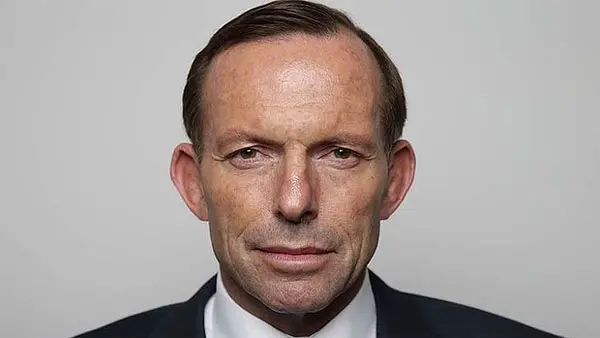Aussie politicians warned not to "play into hands of extremists" Australian political leaders, including former Prime Minister Tony Abbott, have been warned to put aside domestic political agendas when discussing the war in the Middle East, for fear it "plays into jihadi hands."
The latest comments from Abbott about his former government's hard-line approach to fighting terrorism have prompted a rebuke from intelligence agencies and Islamic leaders on Thursday, with some fearing recent comments could incite further divide between cultures and religions.
On Wednesday night, in delivering the Fullerton Lecture in Singapore, Abbott said that Australians should not be "apologetic" about the "clear superiority" of the Western culture.
The former premier was critical of the way Islam was taught in some countries, and also called for a "long, difficult and costly engagement" to eliminate Islamic State (IS) in the Middle East, canvassing the case for troops on the ground in Syria.
Australia's Grand Mufti, Ibrahim Abu Mohammad, moved quickly to defuse the comments on Thursday, releasing a statement criticizing Abbott as "playing into hands of extremists", while simultaneously applauding Prime Minister Malcolm Turnbull's "change of narrative" in denouncing terrorism but not Islam.
Australian intelligence agencies also expressed concerns that such observations were unhelpful to counter-terrorism efforts.
"The tone of Abbott's remarks when he talks about all of Islam puts people off-side," a source told News Corp newspapers on Thursday.
"It makes the job of agencies and law enforcement that much harder."
But Turnbull said on Wednesday that "every single word" he says regarding the situation in the Middle East and the war on IS was carefully chosen and reviewed by the Australian Security Intelligence Oragnisation (ASIO), specifically so he did not "play into the hands" of terrorists.
Former Australian Army commander and now leading strategy advisor, Peter Leahy, told News Corp on Thursday that "political sniping" was taking priority ahead of measured talks about how to best deal with Islamic State (IS), something terrorists would be happy to hear.
Leahy said letting politicians such as Abbott "shut down" two-way debate only "diminishes our ability to understand what is happening".
"We need the debate. It must be had within the Islamic world and we need to have it in our communities so that we can understand and support Islam as it has these discussions," Leahy said.
"We need to be better informed about what's going on. People who are trying to shut down the debate are not doing anybody any good."
Abbott's most recent comments were also criticized by Opposition Leader Bill Shorten, who said the "inflammatory" remarks could undermine the tireless effort of intelligence agencies that are aiming to mitigate the threat posed by the extremist minority at home and abroad.
"Making assertions about cultural and religious superiority is entirely counter-productive," the Opposition Leader said.
Abbott's controversial speech is the latest in a string of outspoken addresses. In October, he called on European nations to block refugees from crossing borders - in line with his government' s "stop the boats policy" - while last week, the former prime minister said that all cultures were not equal, and Islam was desperately in need of reform.
His most recent comments have prompted the Opposition to label Abbott the "Australian Donald Trump."
Following Abbott's latest expression, Prime Minister Turnbull said it was imperative that all Australians are clearly able to distinguish between the overwhelmingly peaceful majority of Muslims, and the terrorist minority.
"We must not seek to tag all Muslims with the responsibility for the crimes of a few ... I'm sure Tony agrees," he said.
 简体中文
简体中文

